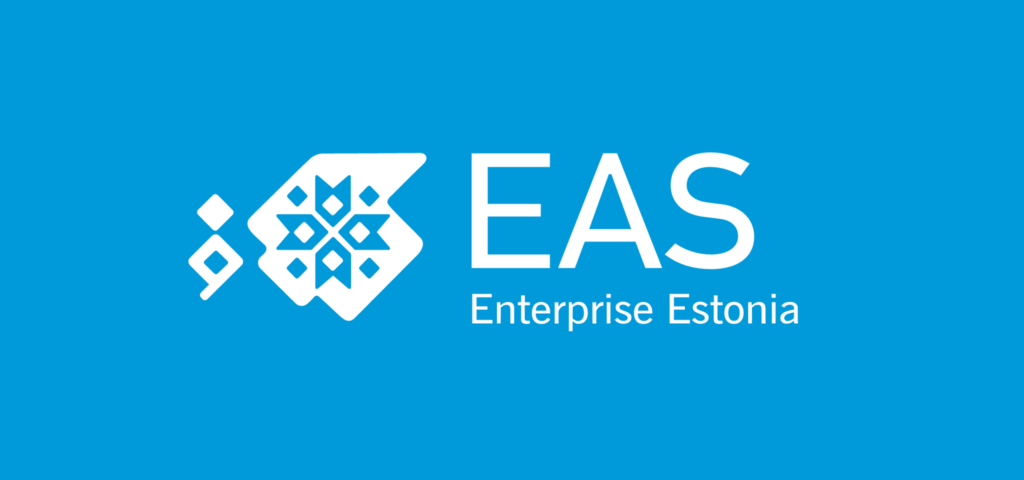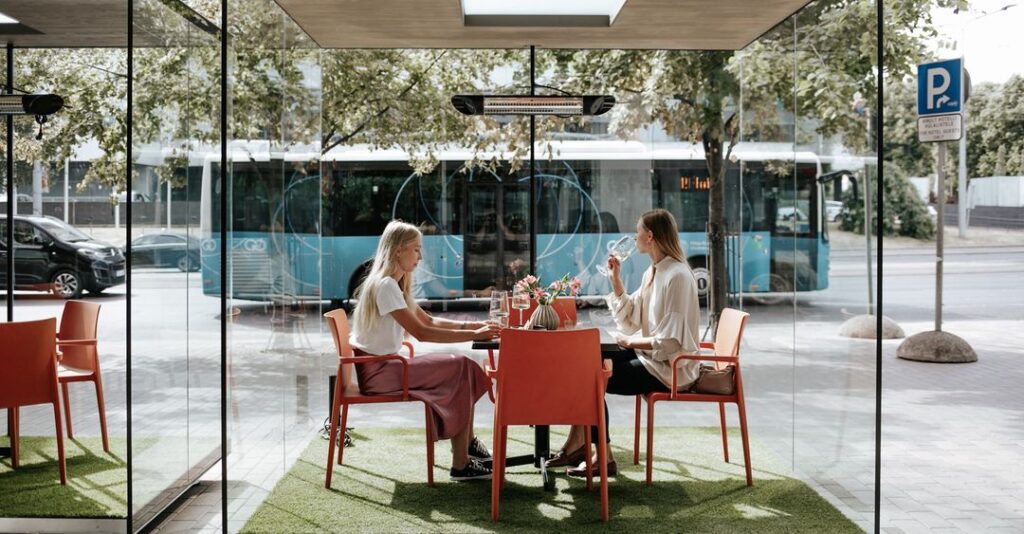Estonian event organisers digitalised business tourism and went global during the crisis
The onset of the COVID-19 pandemic affected all sectors. But as the health crisis hit the world, Estonia started looking for solutions to cope with the new situation from day one. Visit Estonia, Invest Estonia and many event marketing companies recalibrated, went hybrid, and went global.
Rapid recalibration in response to a new reality
Innovative solutions, coupled with bold and strategic decisions have helped Estonia stay connected and increase its international reach during the pandemic. But how has this outcome been achieved?
“Looking back, we can say that Visit Estonia’s decision to act instead of go on stand-by was the first right move that we made,” Kristiina Kästik, B2B Marketing Team Leader at Visit Estonia (Estonian Tourist Board), says. “We immediately reworked our projects, while communicating with our partners to understand what they need,” she explains.
At the early stages of the pandemic, Visit Estonia changed their logo to Visit Estonia later, and proceeded to keep the country on the map despite closed borders. One initiative in support of this was the TV show format presentation, Onlive: Destination Estonia, which reached a few hundred tour operators and wholesalers. Especially as many events simply migrated to Zoom and Teams, Kästik notes that this early initiative exemplified how audience interest can be sustained with new forms of engagement.
“Of course, hybridity does not replace in-person events, it just keeps life moving during the pandemic,” Kästik admits. “But one unique benefit of hybrid events has been the increased international reach. Before we were limited by geographical boundaries, but now it is easier to reach regions and people that we otherwise could not,” she concludes.
Delivering world-class events under the weight of the crisis
The activities of Visit Estonia, and Estonia’s business tourism at large, were upheld by the rapid recalibration of Estonia’s event marketing companies. One example lies in the establishment of Global Virtual Solutions (GVS) – an international consortium of companies, led from Estonia by visionary and GVS Co-founder, Lehari Kaustel.
“At the onset of the pandemic, we had a choice of either applying for support packages or coming up with a new business approach. We chose the latter,” Kaustel shares.
GVS was established based on the initiative of the Creative Union, in collaboration with Miltton and Vok Dams. Early in the crisis, GVS developed a novel solution for organising virtual and hybrid events. As a consortium, GVS combines cutting edge know-how for virtual event organisation, from fields such as cybersecurity to network engineering. According to Kaustel, GVS’ hybrid solution is a ground-breaking innovation, which was successfully created, launched, and built for export within the first 12 months of the crisis.
By now, GVS has enabled over 100 million virtual tourists to “travel” to Estonia through their events. These include, among others, seven UN Security Council meetings, the NATO Cyber Defence Pledge Conference and European Space Week.
Additionally, GVS’ technological capabilities were put to the test with the first ever Digital Song Festival, uniting more than 2500 Estonian choir singers virtually in real time.

“Without even realising, we have started a new chapter in the story of e-Estonia. This has kept our country virtually open during the crisis, helped entrepreneurs and organisations continue their work, and increased the potential of Estonia as the facilitator of global dialogue,” Kaustel concludes.
Within one year, GVS has received international recognition through a number of awards, including the European Amber Event Awards 2020 and Global Event Design Yearbook Nomination 2020/2021.
In addition to GVS, Jolos has been another noteworthy Estonian company during the pandemic. After reworking their services, the company started providing their own hybrid solutions early in the crisis. Their events – made for Invest Estonia, by the way – include Unicorn 59 (June 2021) with 75K+ viewers, and Online Startup Demo Day (May 2020) with 150K+ viewers. The latter was also rewarded with the Silver Egg 2021 award and contributed to Invest Estonia receiving the United Nations Investment Promotion Award for Excellence in the Response to COVID-19 crisis.
Novelty to support engagement across the events industry
But innovation has also extended beyond business, into the realm of sports. Both the 2020 and 2021 WRC Rally Estonia races represent high standard international hybrid events held during the pandemic.
“The 2020 rally was cancelled early due to the COVID crisis,” Tarmo Hõbe, Commercial Director at Rally Estonia, shares. “Despite this, Estonians soon after received an offer, which could not be refused – to organise a full-fledged WRC rally in 63 days. The biggest challenge was being the first WRC stage held in COVID conditions, having to show others the way,” Hõbe explains.
This called for the introduction of novel digital elements to support engagement – from an official Rally online shop to a Rally Estonia App and a unique digital magazine. As fans from abroad were not able to attend the event in 2020, organisers tried to figure out a way to include them and make the racers feel supported. Visit Estonia, together with Rally Estonia and Becs Williams (WRC correspondent), launched a campaign #VirtualRallyFan.
“We wanted to show that Estonia is a hospitable country with an impressive e-image,” Heili Klandorf-Järvsoo, Sectoral Manager of Tourism Marketing at Visit Estonia, explains. “So, we made a landing page for the fans, where they could upload greetings to their favourites, and these were displayed to the teams at the finish. This was also seen as a great innovation during the television broadcast,” she highlights.
“In 2021, the ambition to try even more innovation led the organisers and Visit Estonia to the next idea. Visit Estonia. It’s about time – time concept, which took us back in Estonian history. Our epic hero, the Son of Kalev (Kalevipoeg), was cheering the racers in broadcast in augmented reality form,” Klandorf-Järvsoo concludes.
Due to the complexity of the technical solution, it has only been used a few times around the world, with Rally Estonia being the first in the WRC series. You can watch the WRC Rally Estonia 2021 – Official Aftermovie here.
Reopening Estonian business tourism
Estonian business tourism is now preparing for gradual reopening. This includes new air connections from Tallinn to Zurich (Swissair) and 16 new destinations (Ryanair). Furthermore, the next hybrid business conference, sTARTUp Day, is held on 25-27 August 2021 in Tartu.
Among other institutions, the Estonian Convention Bureau (ECB), sees the hosting of business events in Estonia as a priority to develop the economy, science, culture, and wellbeing of citizens. “We aim to be the location for global discussions in the hybrid world, creating meaningful business events,” Kadri Karu, Managing Director of ECB, shares.
The nearest future will likely continue to be hybrid. But Karu believes that thanks to Estonia’s digital capabilities, the country is well-prepared to be a hotspot for international hybrid gatherings.
Eventually, it will be the valuable human-to-human connections, memorable live experiences, and ROI, that will be the driver behind more business travel and in-person live events. As evidenced by the vibrant events scene during the crisis, Estonia has a lot to offer – in both the analogue and digital space.
Considering investing in Estonia? Send us an enquiry via e-Consulting and our investment advisor will contact you soon to arrange a meeting to help you decide.
Source: Invest in Estonia

Marketing Manager
Posted: 27.08.2021
Categories: News


